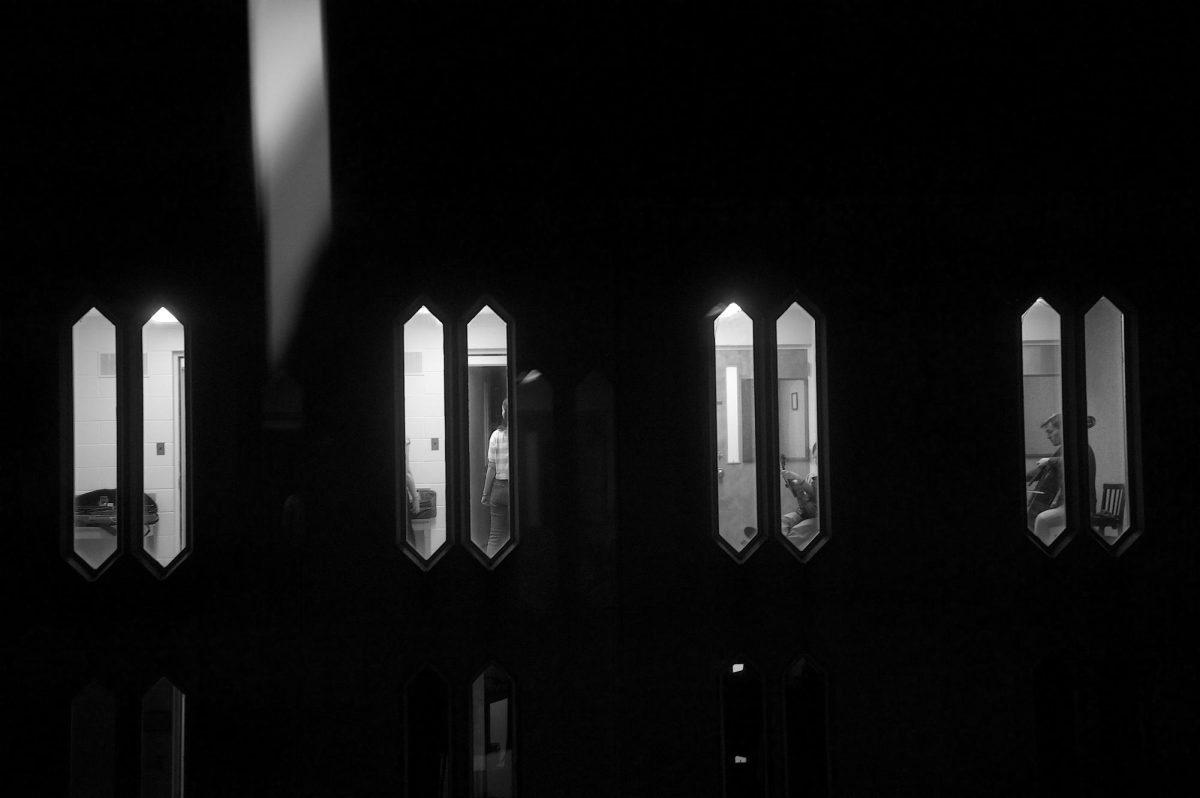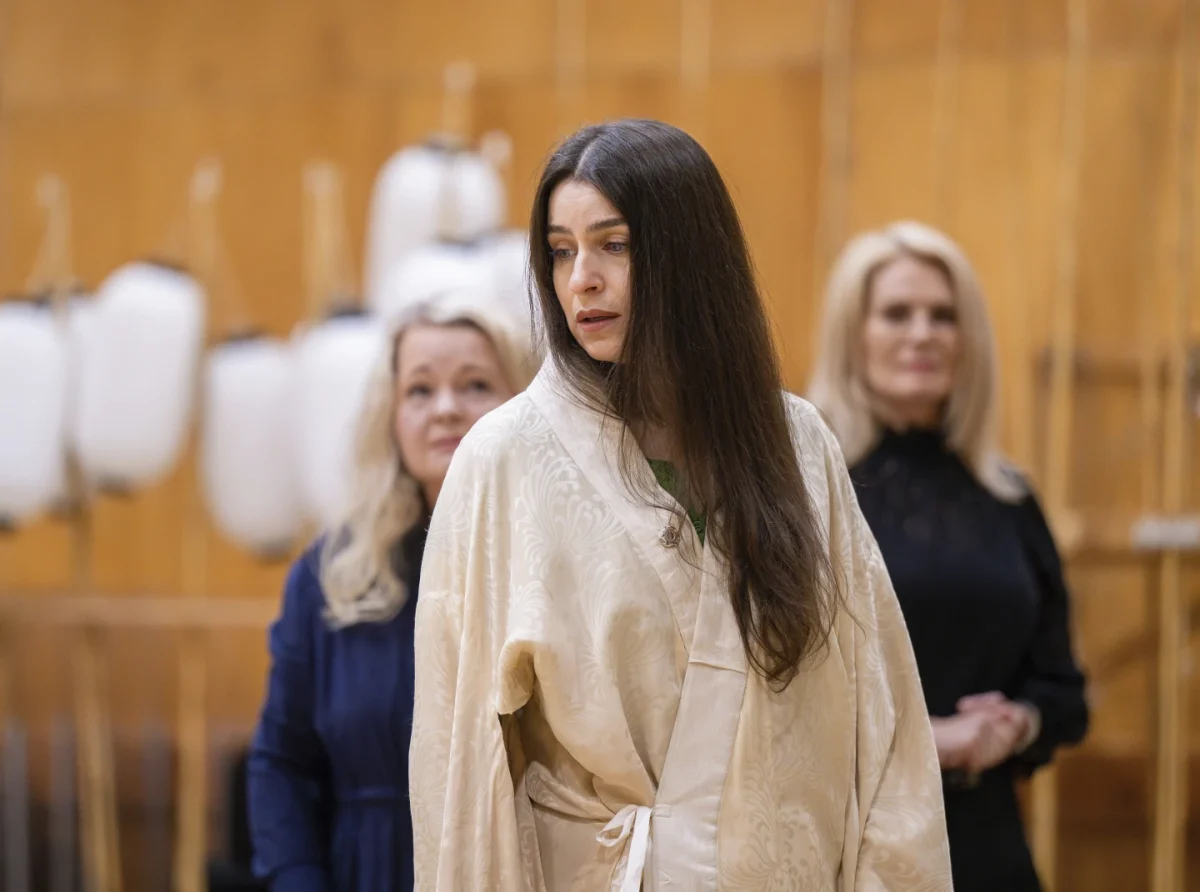Practicing can be a great source of anxiety among Conservatory musicians. Many let in doubts like, what happens if I don’t practice? Or, how much skill will I lose if I take a step back from my instrument? For many students, summer break is a time to frequent local jam sessions, practice intensively, or partake in music festivals and programs. For others, however, this time off is an opportunity to pursue other interests, furthering their musicianship through unconventional and sometimes unforeseeable ways.
Double-degree fifth-year Nick Beltramini spent ten weeks working for the National Oceanic and Atmospheric Administration in Honolulu. There, Beltramini collected and summarized ecological reports and recorded shark mortality rates to help NOAA better advocate for safer fishing practices around O‘ahu.
“One of the reasons why I wanted to go out [to Hawaii] was to ingrain myself in a new culture,” Beltramini said. “There’s a different set of music and customs that go along with the island tradition.”
While in Hawaii, Beltramini, sometimes unintentionally, found ways to merge his interests in environmental research and music. Through talking to local ukulele vendors and taking lessons on native Hawaiian instruments, he observed similarities between his own and the locals’ approaches toward playing and discussing music.
When students pick their instruments back up after any sort of hiatus, there’s usually a period of relearning. This can be a good opportunity to get rid of bad habits or start in an entirely new direction of practice. For Beltramini, living in Honolulu was a catalyst for a new learning curve.
“It’s so easy to get caught up in a cycle of, ‘I’m gonna play through these scales, and I’m gonna read these exercises down, and then I’m gonna work on a transcription,’ but it’s hard to make a change,” he said.
Beltramini reconnected with his instrument thanks to more than just the period of separation. In Hawaiian culture, many are guided by aloha, a principle referring to a sense of peace and unity within the minds and hearts of each person, as well as with the land. Beltramini acknowledged that he can never have the lived experiences of a Native Hawaiian, but through his work in ecological restoration and giving back to the land, he felt a stronger sense of community. As he returns to Oberlin for his final semester, Beltramini hopes to see this emphasis on community and collaboration carry over toward his musical pursuits.
“Seeing yourself in a role of the bigger picture is something that I can absolutely apply to music,” Beltramini said. “Even though we solo and have a spotlight we’re still serving a bigger purpose.”
Double-degree third-year Sarah Ying Ma spent the majority of the summer researching conservatory pedagogy at the Juilliard School through the Oberlin College Research Fellowship, as part of the Oberlin Summer Research Institute. Ma conducted interviews with Juilliard alumni and worked with a librarian at the Juilliard School Archives to collect data on administrative records, which included over 100 years of music course catalogs.
The literature Ma studied was centered around the ways in which racism and colonialism are deeply embedded in classical music education, especially in conservatories. Ma found that the harmonic syntax taught in conservatories often not only conforms to dated Western ideologies, but is inherently anti-collaborative.
“Engaging with that type of literature has really changed my approach to both listening and how I think about music,” Ma said. “I think it’s really important for classical musicians to be acutely aware and critical of the problems that contextualize the music they’re playing.”
Ma wants to cultivate dialogue around who created the musical systems we are educated in. Through conversation, musicians come to conclusions about which classes are mandatory versus optional at a conservatory. This archival research helped Ma further understand and appreciate the importance of taking diverse classes that explore conservatory music outside of the Western perspective.
“I’m going to be continuing that research throughout the school year, hopefully,” Ma said. “I want to keep learning more and eventually expand my studies of music curricula into other schools.”
From early June to late August, double-degree third-year Martin Kent worked as a counselor at Farm & Wilderness, an off-the-grid overnight camp in Vermont. Campers and counselors slept in three-walled cabins and went on backpacking trips. The camp was also located in a cell reception deadzone and operated under a strict “no devices around campers” rule. Even listening to recorded music was only possible on his days off. This was the longest Kent had gone without regularly practicing since high school.
Despite this long break from regimented practice and collaboration, Kent was able to play techniques on the drums he previously hadn’t been able to do when he returned from camp. Over the past two years at Oberlin, he’d been attempting a complex technique implemented by jazz great Tony Williams, which entails playing fast notes with the hi-hat on all four beats, as opposed to beats two and four.
“I gave [the technique] the room it needed to breathe. When I got back to my kit, I sat down to play and it was just there,” Kent said. “I had been struggling for a while to determine how to move forward both on my instrument and just personally. Working at F&W wasn’t an over calculated or over-planned thing. I just said, ‘okay, that sounds good on a human being level, I’ll do it.’ It turned out to be exactly what I needed, and beyond what I even thought I needed it to be.”
When asking any professor about the most important part of playing jazz, they will almost certainly answer with “listening.” Kent’s camp is Quaker-based, and campers and staff have a 30-minute silent meeting every morning in the woods. Because of the camp’s emphasis on listening, Kent practiced that aspect of musicianship throughout the summer.
“Working with kids, … there’s an organic nature to every interaction, and you really have to listen to them and hear them out,” Kent said. “It’s a real exercise in empathy and awareness.”
These experiences highlight the interesting and diverse ways Conservatory students spend their summer. It sheds light on the fact that students can connect to their musicianship outside of just practicing and can even further their skill and experience through what many would consider “unconventional methods.” When looking toward the future and planning the summer ahead, musicians should ask themselves what they need to do rather than what others expect them to do. It is through that challenge that amazing experiences and lessons can happen.








